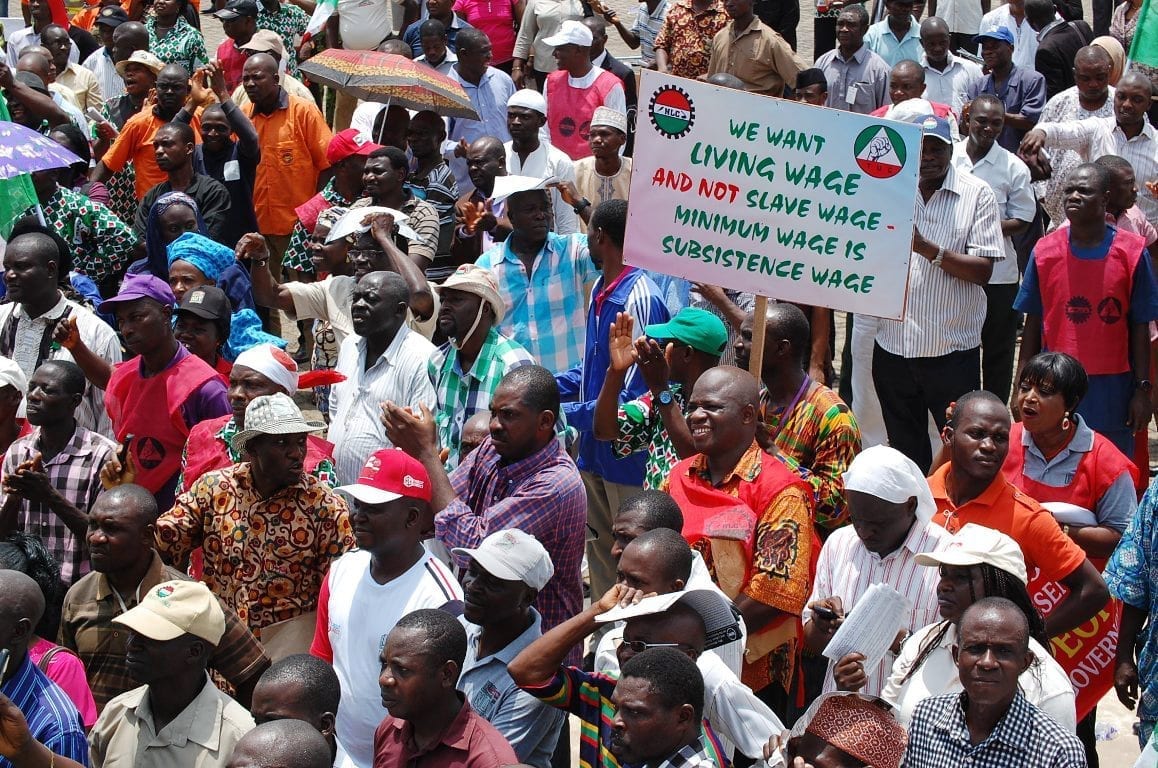Carrying signs reading, “Minimum Living Wage, Not Slave Wage,” Nigerian workers peacefully marched this week to protest a proposal to remove the Parliament’s ability to legislate wage, labor and pension issues by making such rulemaking the purview of 37 different states. The plan, which would amend the 1999 Constitution, would eliminate a national minimum wage by allowing states to set their own.
The country’s two major labor federations, the Nigerian Labor Congress (NLC) and the Trade Union Congress (TUC), say the proposal negates the principle of collective bargaining and runs contrary to International Labor Organization (ILO) Convention 131 on the minimum wage. Amending the Constitution, they say, would mean 85 million Nigerian men and women will work in precarious, deregulated and unprotected conditions.
The TUC said the point of a national minimum wage “is to ensure that employees, particularly the unorganized and unskilled, are not exploited by their employers to the extent that their pay becomes so low” that people are impoverished. The minimum wage is “not a living wage. As such it guarantees a mere bare existence for workers in the formal sector—public and private. It also influences wages in the informal sector, thus minimum wage, as approved to salary increase, affects all.”
Protesters rallied on Wednesday at the NLC Labor House in Abuja, the capital, before marching to the National Assembly Complex to submit a protest letter to the Senate leadership. There, Senate President David Mark told them that the National Assembly’s conference committee would register their concerns when it begins to reconcile draft bills from both chambers.

